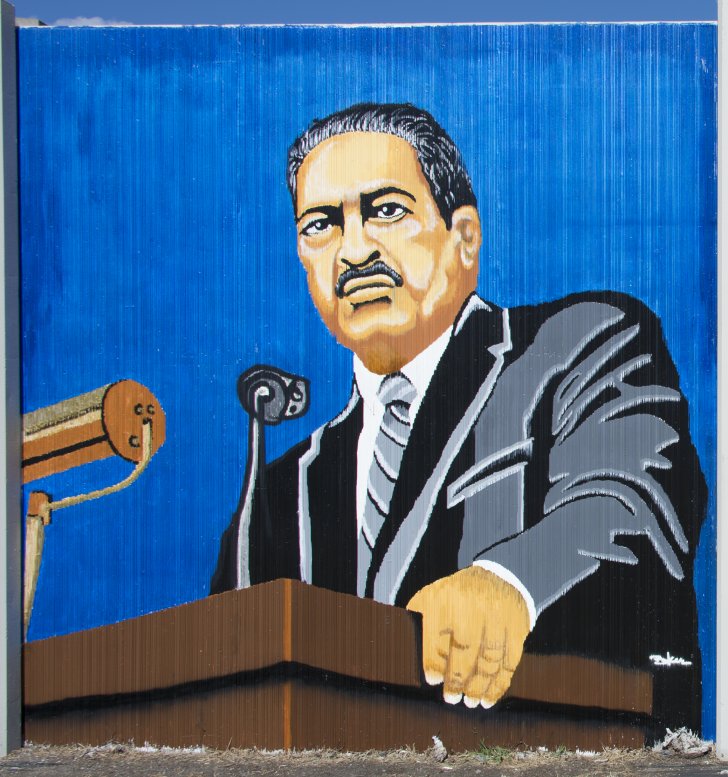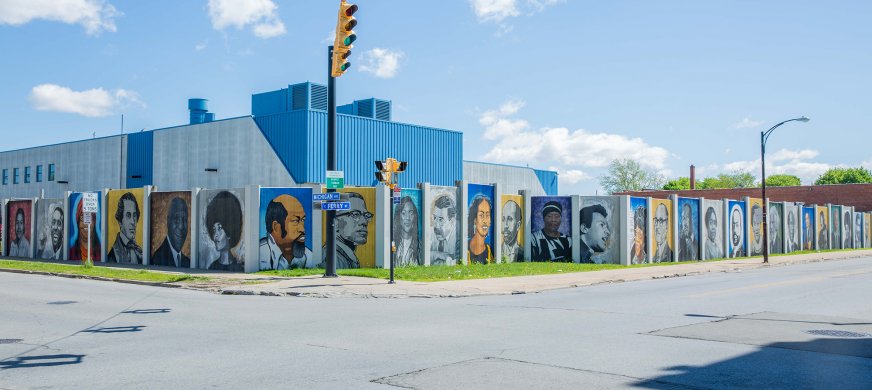Thurgood Marshall

John Baker’s portrait of Thurgood Marshall for The Freedom Wall, 2017. Photograph by Tom Loonan.
In 1954, Thurgood Marshall, the long-serving chief counsel of the NAACP during the height of the Civil Rights movement, rose to national prominence after successfully arguing before the Supreme Court the case of Brown v. Board of Education, which ended racial segregation in public schools. Brown v. Board of Education was only one of Marshall’s twenty-nine Supreme Court victories, which also included major blows against segregation at graduate and professional schools and in housing. His success in fighting discrimination through the legal system led to his appointment to the United States Court of Appeals in 1961, as Solicitor General of the United States in 1965, and to the Supreme Court in 1967, where he would become the first African American justice.
Marshall believed in the power of the law to create positive change in society and protect human rights, stating, “In recognizing the humanity of our fellow beings, we pay ourselves the highest tribute.” During his twenty-four year tenure on the Supreme Court, Marshall passionately pursued an interpretation of the Constitution that actively protected citizens against discrimination, especially in education, and preserved their rights within the criminal justice system.
